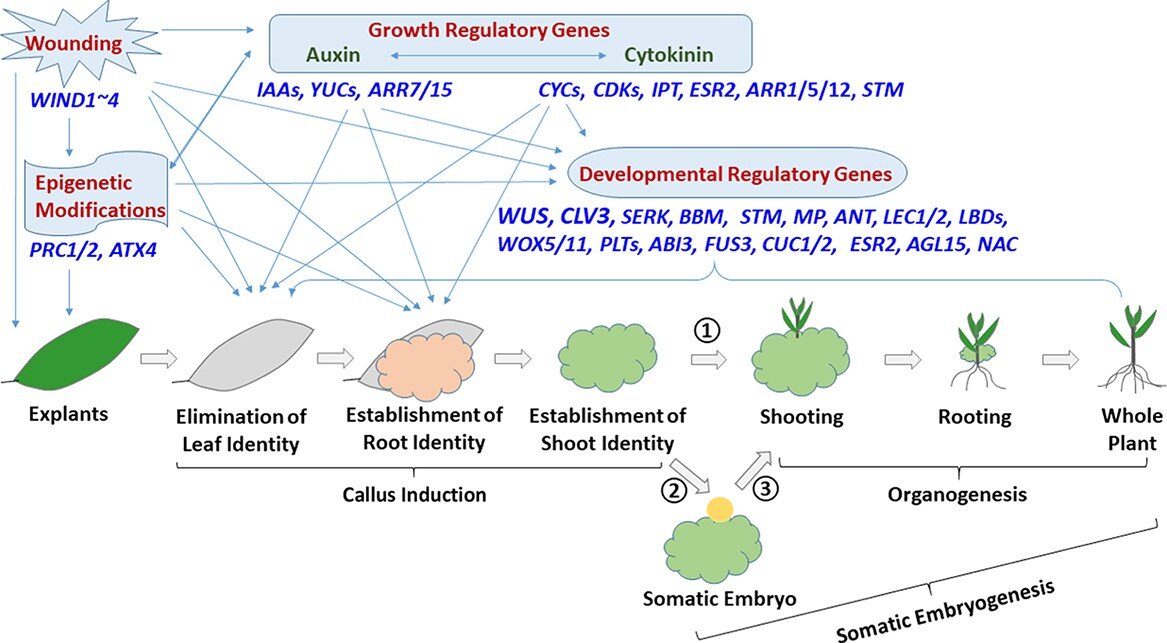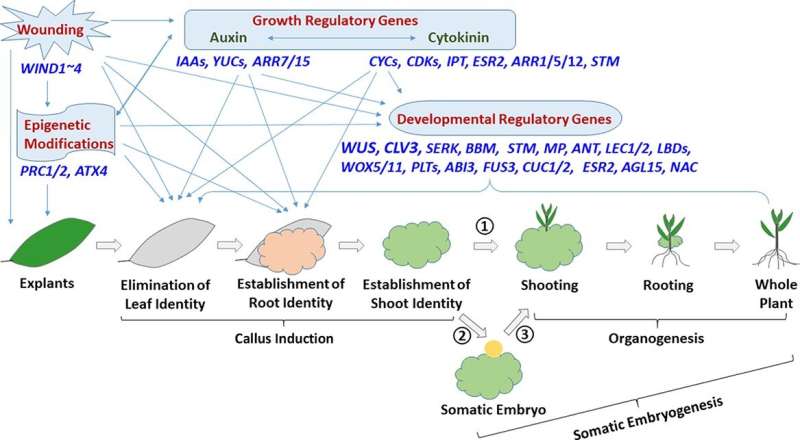

Recently, researchers from North Carolina State University and the Beltsville Agricultural Research Center published the first review of research progress on genotype-independent plant transformation. In this review, researchers discussed recent advances in the use of regulatory genes in plant transformation and regeneration, as well as their potential to facilitate genotype-independent plant transformation and regeneration.
Somatic embryogenesis and de novo organogenesis are the two main means of plant regeneration. Many genetic and environmental factors can affect plant regeneration, and four types of regeneration-promoting factors play essential roles: wounding, epigenetic modifications, growth regulatory genes, and developmental regulatory genes.
Wounding is the primary external trigger for callus induction from explants, which is caused by a series of damage-associated molecular patterns. These local wounding signals are translated into long-distance signals such as the electrical signal of glutamate receptor-like cation channels, thereby inducing epigenetic modifications, alterations in the synthesis and accumulation of cytokinin and free auxin, and transcriptional upregulation of growth and developmental regulatory genes. Transcriptional changes include the activated expression of callus-inductive chromatin-remodeling regulator genes. These regeneration-promoting factors work together to tightly and precisely control each step of callus formation and plant regeneration.
How best to use plant developmental regulatory genes in plant transformation is a challenging question. Constitutive or ectopic expression of most such genes typically interferes with normal plant growth and development and causes undesirable pleiotropic effects. Fine-tuning the expression of these genes is critical for the regeneration of normal, fertile plants of different species. The researchers summarized the advantages and disadvantages of these regulatory factors and discussed the use of a dexamethasone (Dex)-inducible expression system or estradiol-inducible expression system to fine-tune their expression.
The review was published in the journal Horticulture Research.
Researchers reveal hierarchical transcriptional regulatory network for plant somatic embryogenesis
Nathan A Maren et al, Genotype-independent plant transformation, Horticulture Research (2022). DOI: 10.1093/hr/uhac047
Provided by
Nanjing Agricultural University The Academy of Science
Citation:
A review article clarifies genotype-independent plant transformation (2022, August 12)
retrieved 12 August 2022
from https://phys.org/news/2022-08-article-genotype-independent.html
This document is subject to copyright. Apart from any fair dealing for the purpose of private study or research, no
part may be reproduced without the written permission. The content is provided for information purposes only.